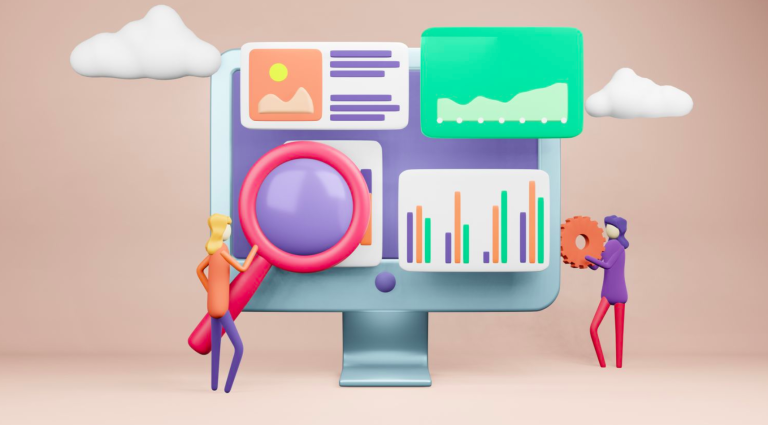The Role of AI in Enhancing Cybersecurity
In an era where digital transformation is the norm, cybersecurity has become a critical concern for businesses and individuals alike. As cyber threats continue to evolve, traditional security measures alone are no longer sufficient. Enter Artificial Intelligence (AI), a game-changer in the cybersecurity domain. This blog post delves into the role of AI in enhancing cybersecurity, exploring its impact, benefits, and future prospects.
Understanding the Cybersecurity Landscape
With the rapid advancement of technology, the cybersecurity landscape has become increasingly complex. According to a report by Cybersecurity Ventures, cybercrime is predicted to inflict damages totaling $10.5 trillion annually by 2025. This staggering statistic underscores the urgent need for robust cybersecurity measures.
The Rise of Cyber Threats
Cyber threats have become more sophisticated, with hackers using advanced techniques to breach security systems.  From phishing attacks to ransomware, the variety and frequency of cyber threats are daunting. In 2022 alone, there were over 3,800 publicly disclosed data breaches, exposing more than 4.1 billion records.
From phishing attacks to ransomware, the variety and frequency of cyber threats are daunting. In 2022 alone, there were over 3,800 publicly disclosed data breaches, exposing more than 4.1 billion records.
The Limitations of Traditional Security Measures
Traditional security measures, such as firewalls and antivirus software, are no longer adequate in the face of modern cyber threats. These solutions often rely on signature-based detection, which can only identify known threats. This creates a significant blind spot for new, unknown threats, leaving organizations vulnerable.
How AI is Revolutionizing Cybersecurity
AI has emerged as a powerful tool in the fight against cybercrime. By leveraging machine learning and advanced analytics, AI can identify and respond to threats faster and more accurately than traditional methods.
AI-Powered Threat Detection
One of the primary advantages of AI in cybersecurity is its ability to detect threats in real-time. AI algorithms can analyze vast amounts of data to identify patterns and anomalies that may indicate a security breach. For instance, AI can detect a sudden spike in network traffic, signaling a potential Distributed Denial of Service (DDoS) attack.
Automated Incident Response
AI not only helps in detecting threats but also in automating incident response. By automating routine tasks, such as patch management and vulnerability scanning, AI allows cybersecurity teams to focus on more critical tasks. This automation reduces the response time to incidents, minimizing potential damage.
Behavioral Analysis and Anomaly Detection
AI’s ability to perform behavioral analysis is a game-changer in identifying insider threats. By monitoring user behavior and identifying deviations from the norm, AI can detect potential security breaches before they occur. For example, if an employee suddenly accesses sensitive data at odd hours, AI can flag this as suspicious activity.
Real-World Examples of AI in Cybersecurity
Several organizations have successfully implemented AI to enhance their cybersecurity measures. Here are a few noteworthy examples:
IBM’s Watson for Cyber Security
IBM’s Watson for Cyber Security leverages AI to analyze and interpret vast amounts of security data. By understanding natural language, Watson can identify threats and provide actionable insights to security professionals. This has significantly improved threat detection and response times for organizations worldwide.
Darktrace: AI-Powered Cyber Defense
Darktrace is a leading cybersecurity firm that uses AI to detect and respond to threats in real-time. Its Enterprise Immune System technology mimics the human immune system, learning and adapting to new threats autonomously. This innovative approach has helped businesses across various sectors enhance their cybersecurity posture.
Challenges and Considerations in AI-Driven Cybersecurity
While AI holds immense potential in enhancing cybersecurity, it is not without challenges. Organizations must consider several factors to effectively integrate AI into their cybersecurity strategies.
Data Privacy and Ethics
AI systems require vast amounts of data to function effectively. This raises concerns about data privacy and the ethical use of AI. Organizations must ensure that AI systems comply with data protection regulations, such as GDPR, and implement measures to safeguard user privacy.
The Risk of AI-Powered Attacks
As AI becomes more prevalent, cybercriminals are also leveraging AI to launch more sophisticated attacks. For instance, AI-powered malware can adapt and evolve to evade detection. Organizations must stay ahead of these threats by continuously updating their AI systems and investing in advanced threat intelligence.
Future Prospects: The Role of AI in Shaping Cybersecurity
The future of AI in cybersecurity looks promising, with continuous advancements in technology and research. Here are some potential developments to look forward to:
Integration of AI and Blockchain
The integration of AI and blockchain technology holds significant potential in enhancing cybersecurity. Blockchain’s decentralized nature provides a robust framework for secure data storage and transfer. By combining this with AI’s analytical capabilities, organizations can achieve unprecedented levels of security.
Enhanced User Authentication
AI is set to revolutionize user authentication methods, moving beyond traditional passwords. Biometric authentication, such as facial recognition and fingerprint scanning, is becoming more prevalent. AI algorithms can enhance these methods by detecting anomalies and ensuring secure access.
Conclusion: Embracing AI for a Secure Future
The role of AI in enhancing cybersecurity is undeniable. By leveraging AI’s capabilities, organizations can strengthen their defenses against the ever-evolving landscape of cyber threats. However, it is crucial to address the challenges associated with AI adoption, ensuring ethical use and staying ahead of AI-powered attacks.
As we move into the future, embracing AI-driven cybersecurity measures will be essential for protecting digital assets and maintaining trust in the digital world. By staying informed and proactive, organizations can harness the power of AI to secure their operations and safeguard sensitive information.


